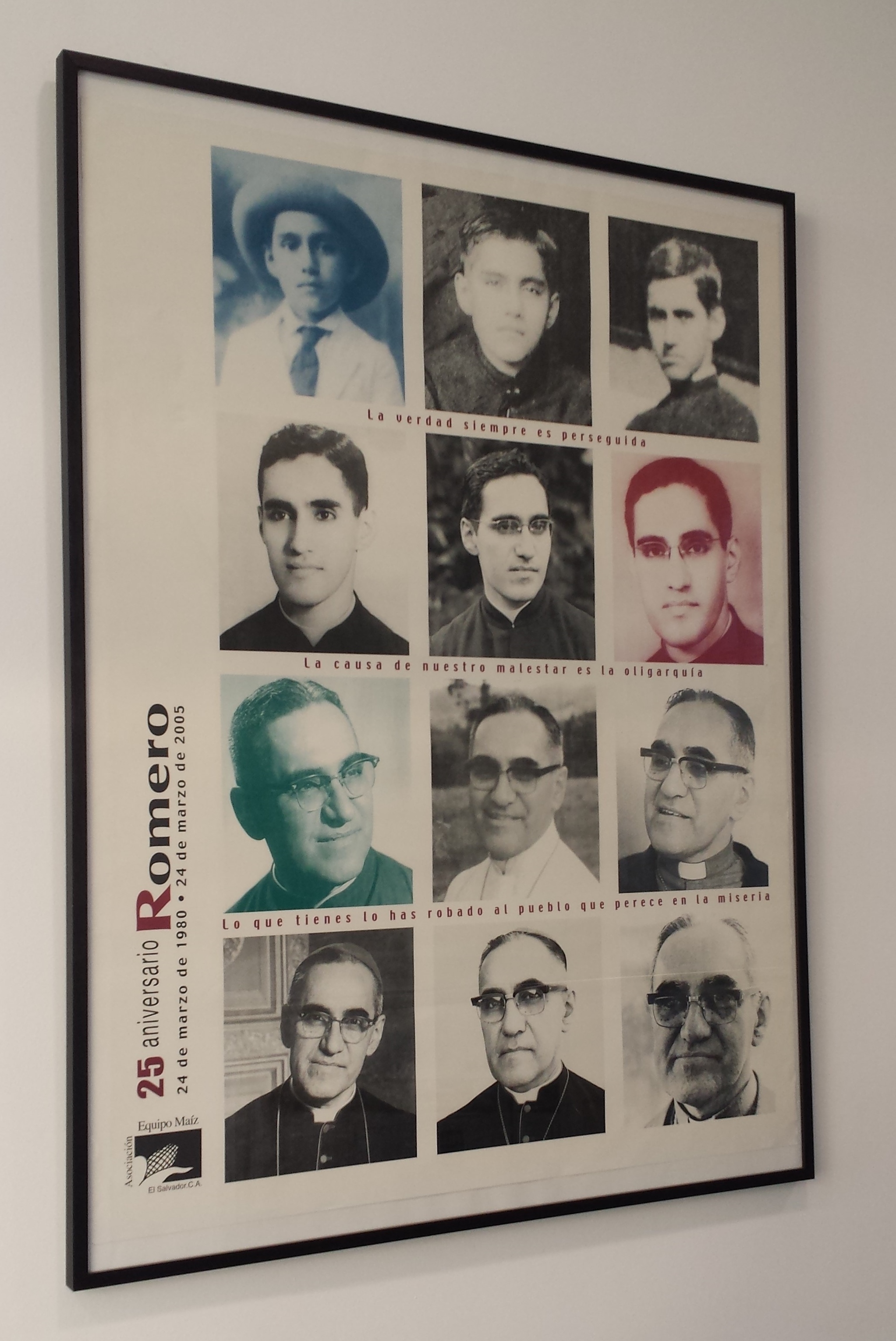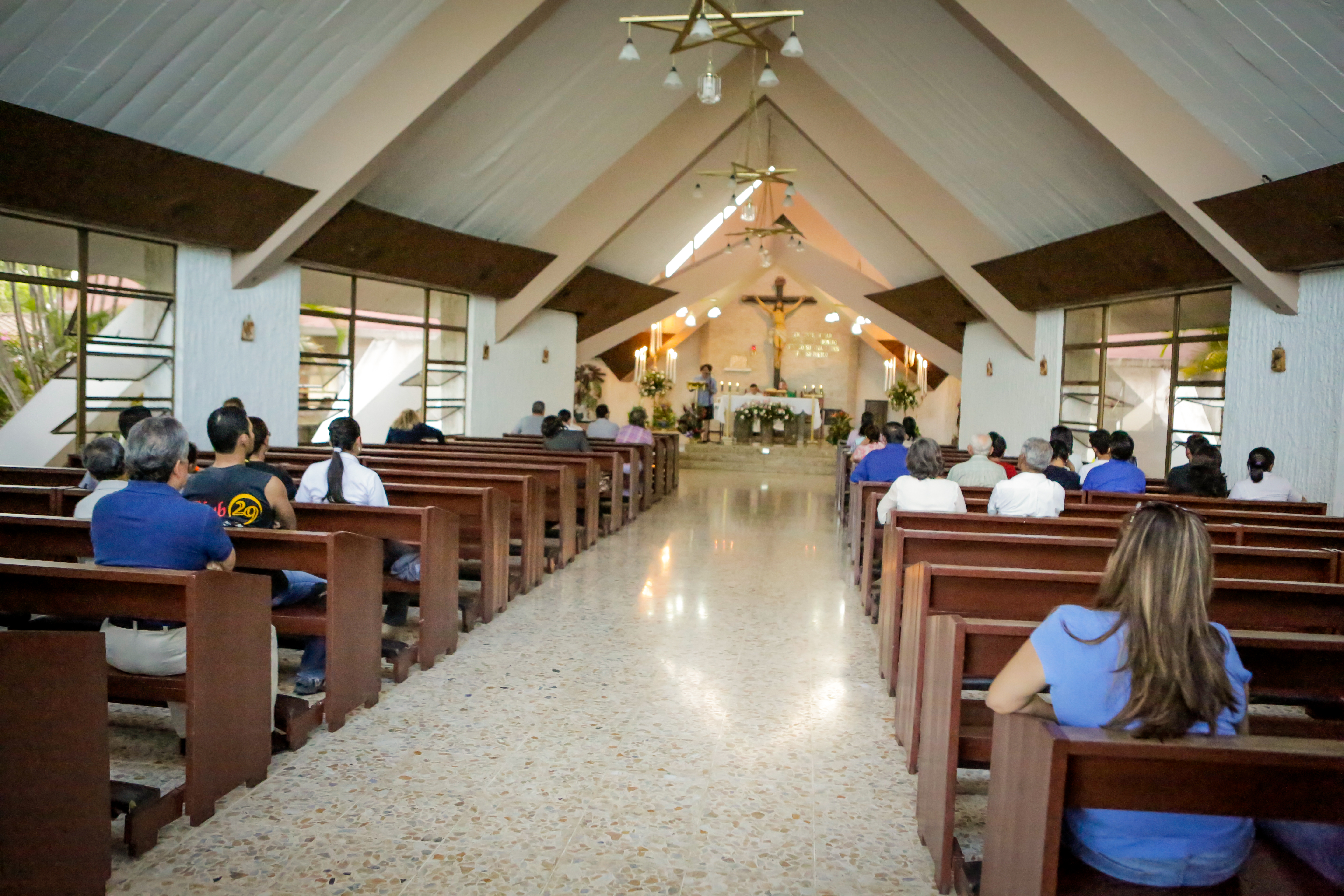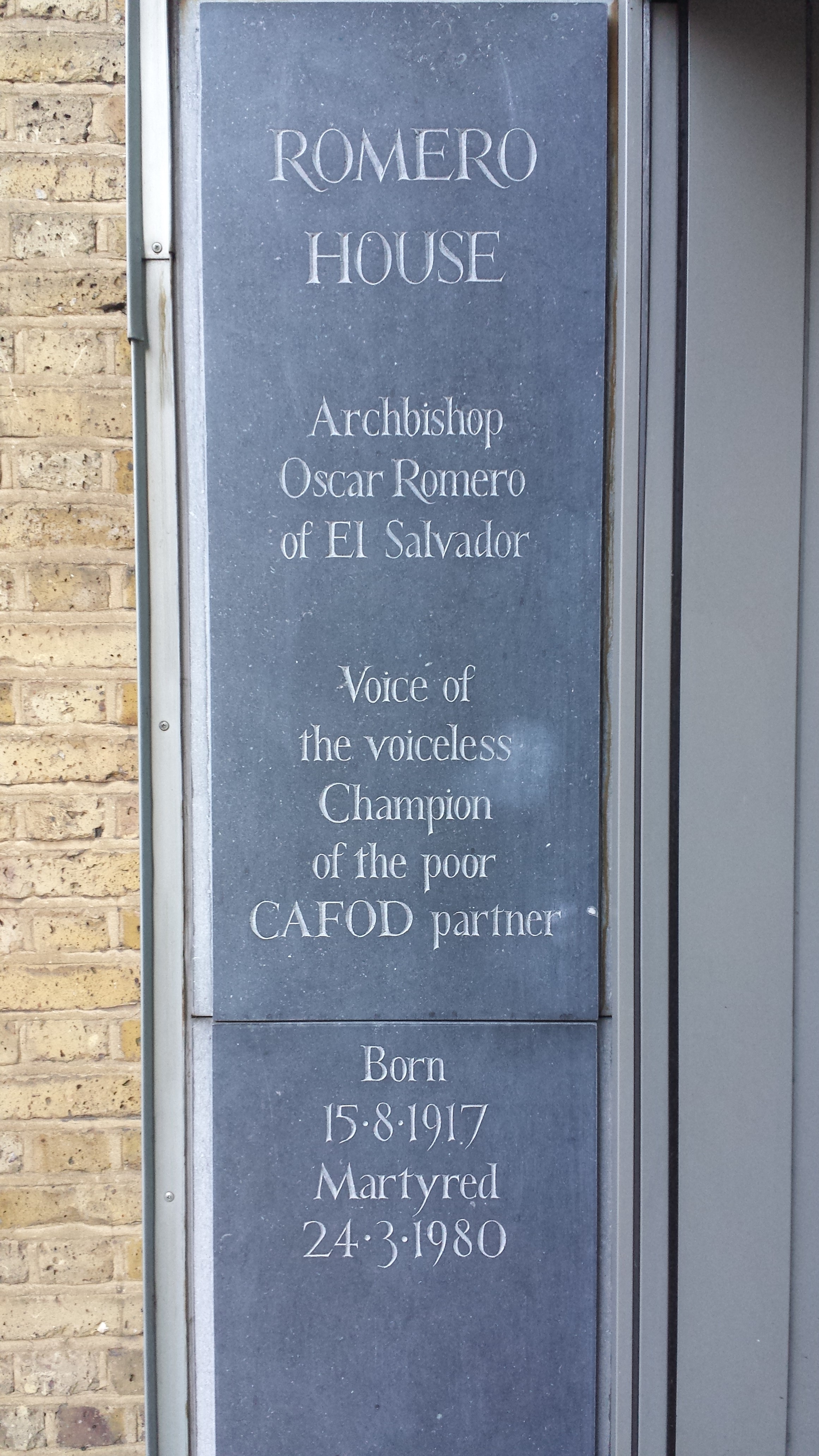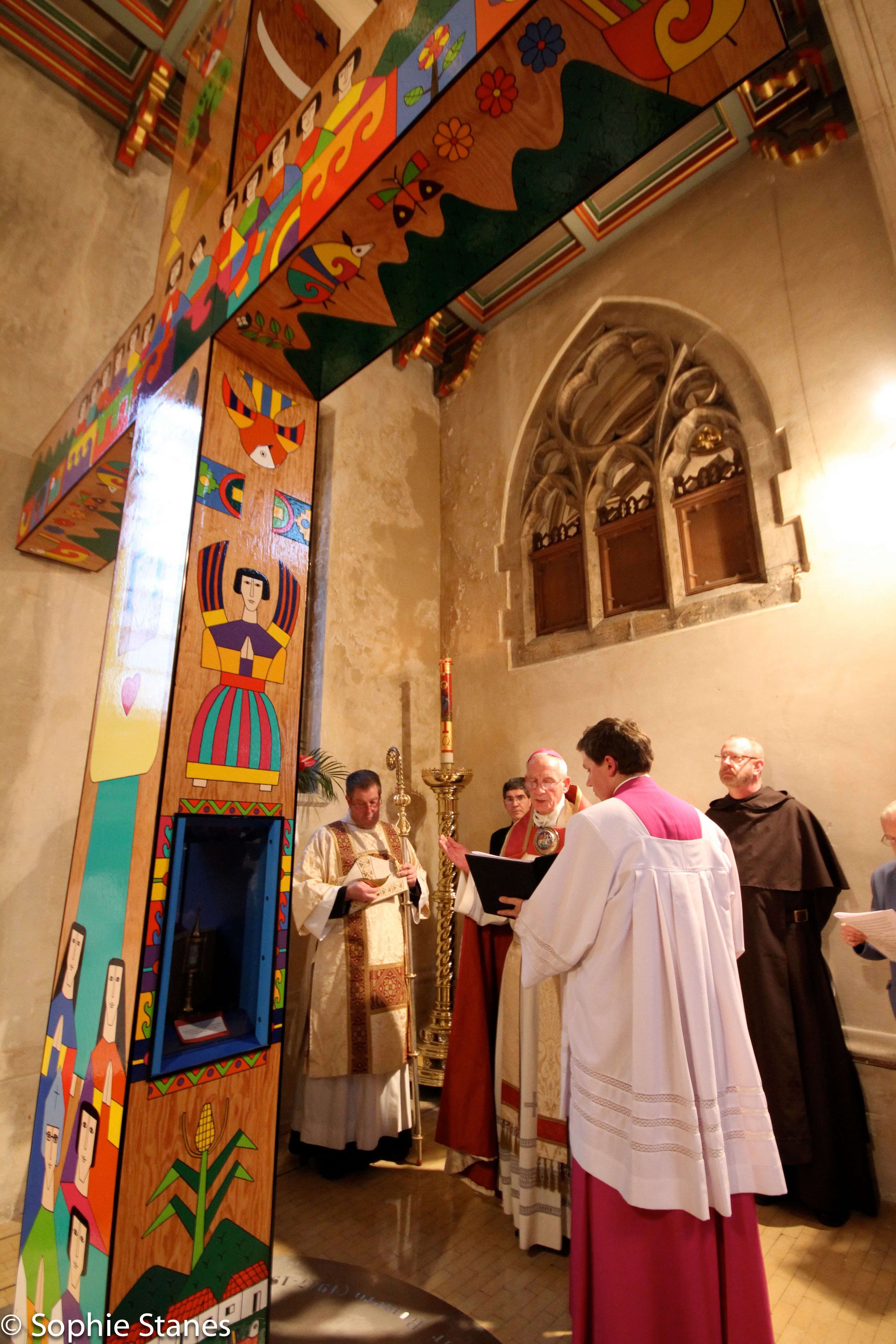Lent 2015: Oscar Romero – CAFOD Servant Leader
Liam Finn is CAFOD’s Regional Media Officer. His personal Lent journal today focuses on Archbishop Oscar Romero, who was a CAFOD partner and remains a great example of a ‘Servant Leader’.
When the CAFOD Lent calendar was launched in February and my colleagues and I were working out which days we were going to write our journals on, there was no way I was going to pass up the opportunity to write about Oscar Romero.

Archbishop Romero epitomises what CAFOD is about: people giving of themselves to achieve One Just World in which every child, woman, and man can live in peace and free from poverty. And I’ve deliberately chosen to speak of Romero in the present tense, despite it being 35 years this month since his assassination. Romero said himself “If they kill me, I shall rise again in the Salvadoran people”. He also lives on in CAFOD supporters, partners, and anyone who strives to bring about that one just world.
Like so many CAFOD partners, Romero was a ‘Servant Leader’. It’s a fantastic term. ‘Servant’ and ‘leader’ seem to be opposite things. The reality is that a proper leader can’t be anything but a servant.
A leader who does not put her or himself at the service of others is not a leader. They’re in it for themselves, for fame, or for praise. But what’s the point in that? An orchestral conductor might be the most celebrated in the world, but she or he serves the music. Without the conductor, the musicians would struggle to play in time or might compete for attention; but without the orchestra, the conductor is just a person waving a stick in the air.
Support servant leaders worldwide by donating to CAFOD’s Lent appeal
Jesus makes this clear in today’s Gospel:
You know that among the gentiles the rulers lord it over them, and great men make their authority felt. Among you this is not to happen. No; you must be your servant, and anyone who wants to be first among you must be your slave, just as the Son of man came not to be served but to serve, and to give his life as a ransom for many.
A servant leader is three things.
(1) Someone who doesn’t seek glory
Jesus tells us in the Gospels that we are not to seek praise of what we do, warning us to be wary of the scribes and Pharisees who show off about their wealth and position.
Yet we all like praise and attention. We’re keen to make ourselves important, whether through things we own or through our status. We might work hard, but when we’re doing so, is it because our work is for the common good? Or is it to make ourselves look good?
Status is not important. A title is just a name. It’s impact that’s important. What you do with your work and with your life is what matters.
Romero was the leader of the Church in El Salvador. But he didn’t rely on his high position to avoid hardship; he used his status to embrace hardship in order to stand in solidarity with people who were disadvantaged and oppressed.

(2) Someone who works with, listens to, and learns from others
Nobody can achieve anything on their own. We all depend upon one another and need to work together. A leader needs to be able to listen to other people and learn from them before making decisions.
Romero knew this well. His understanding of the Church’s mission evolved as he listened to the people and priests who were living in poverty or suffering from attacks and killings. When his friend and fellow martyr Fr Rutilio Grande SJ was murdered, he sought the advice of priests and nuns before deciding to hold just one huge celebration of Mass and cancel all others in the Archdiocese in order to send a powerful message of unity.
We need to follow Romero’s example of working with and learning from others if we are to be effective servant leaders. Everybody has a part to play in bringing about one just world.

(3) Someone who is prepared to sacrifice themselves
It’s tragically apt that Oscar Romero lost his life during Lent – a time of sacrifice, but also a time of preparing for the promise of resurrection at Easter.
We’re all called to make a sacrifice. It’s not easy. But Lent offers us an opportunity to spend time in prayer to discover what it is that God is calling us to sacrifice – maybe cutting something out to fundraise for the CAFOD Lent appeal, or giving up some time to volunteer, or sacrificing some free time in order to pray.
Oscar Romero, like Jesus, made the ultimate sacrifice. We must also be ready to carry a cross in order to bring about a world free from poverty.

Oscar Romero is one of my personal heroes. I have a Romero Cross on my bedroom wall to inspire me when I’m starting each day. I walk through the entrance of Romero House each morning, CAFOD’s headquarters, past a plaque commemorating him as a “Voice of the voiceless” and “Champion of the poor”. And I try to pop into St. George’s Cathedral next door to the CAFOD office each afternoon to pray at the huge Romero Cross which contains the Archbishop’s zucchetto and a fragment of the alb he was wearing when he was shot. These are all things that serve to inspire me in my own work at CAFOD.
I hope this Lent to spend more time learning from Oscar Romero about the areas of my life in which I’m called to be a servant leader.
One thought on “Lent 2015: Oscar Romero – CAFOD Servant Leader”